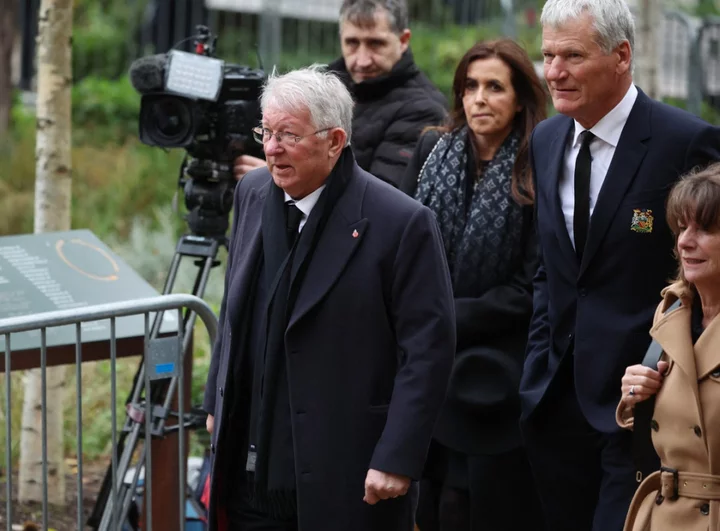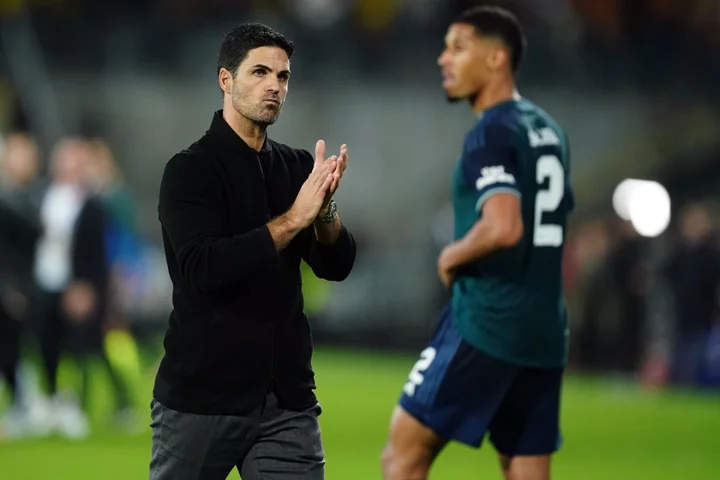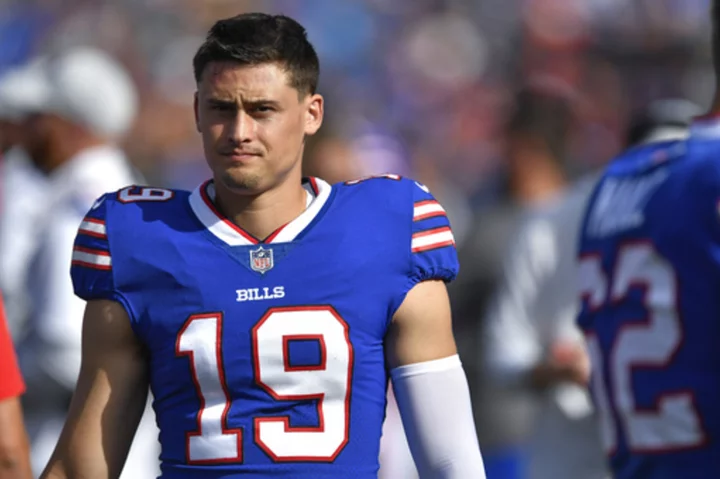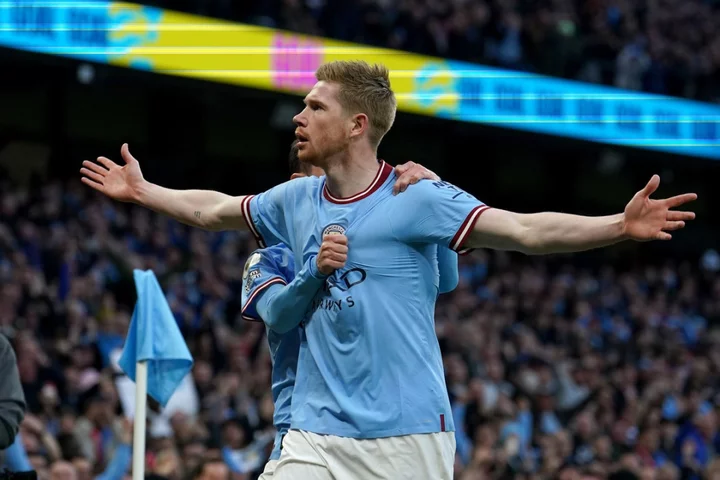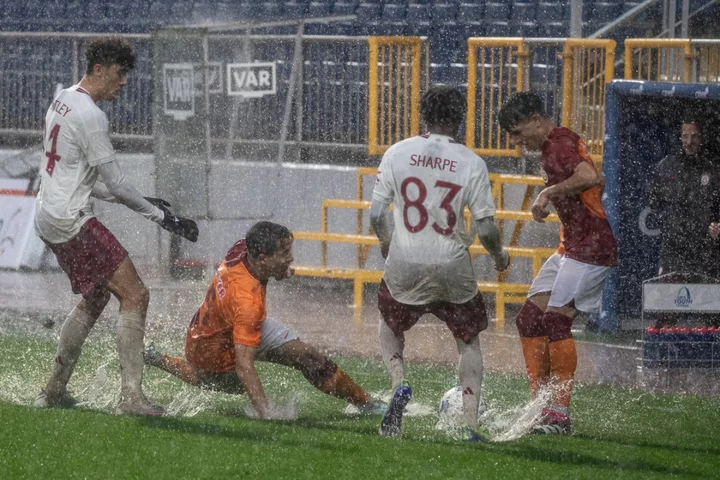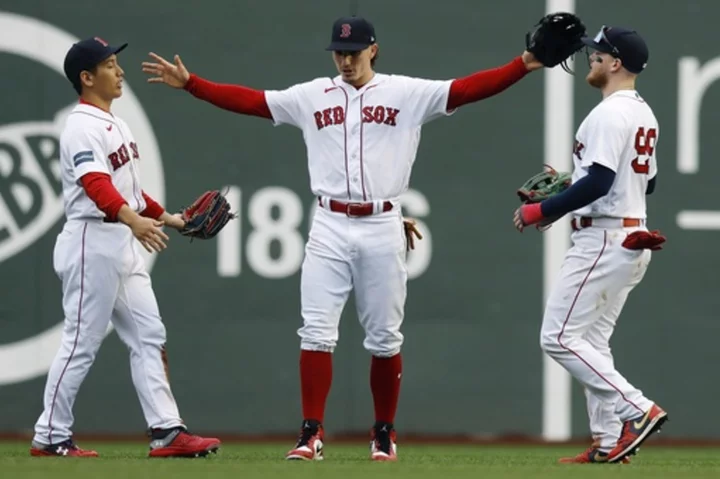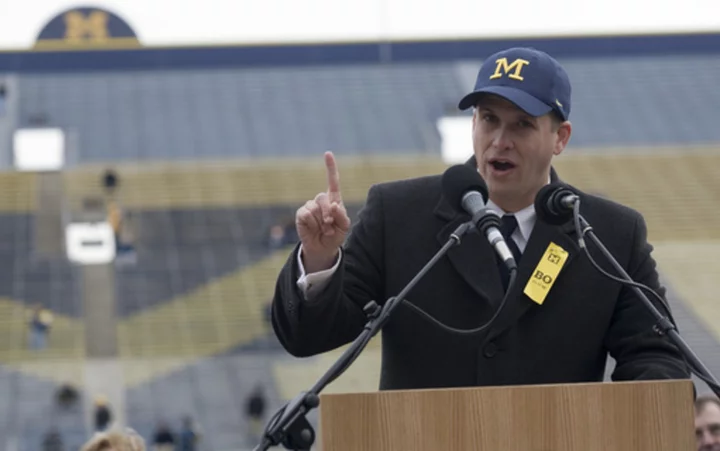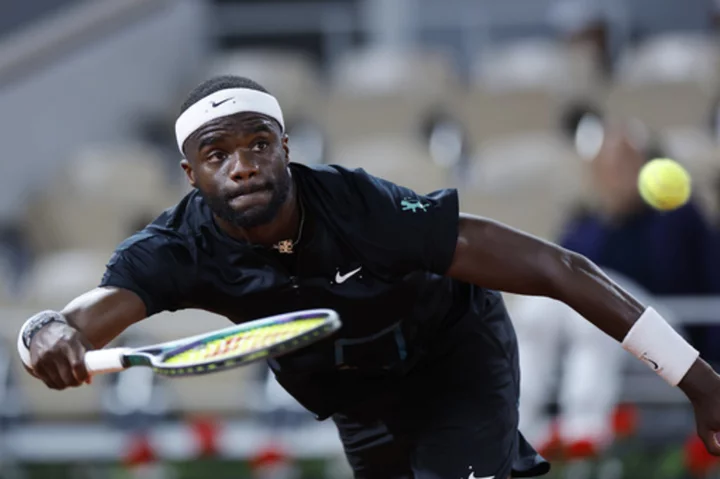When will Conor McGregor return to the UFC?
Conor McGregor’s UFC return is edging closer. McGregor has not fought since suffering a broken leg in a loss to Dustin Poirier in July 2021, but he returned to the United States Anti-Doping Agency’s (Usada) testing pool on 8 October. The end of that saga has also sparked the end of the UFC’s relationship with Usada, which said on 11 October that it would not renew its partnership with the UFC in January, claiming that the organisations’ relationship was made ‘untenable’ by McGregor’s situation. It was announced in February that McGregor, 35, would fight Michael Chandler this year, but McGregor remained absent from the Usada pool for months; in order to compete in the UFC, athletes must have been in the pool for six months while returning zero positive test results and at least two negatives. The UFC and McGregor hinted that he might be granted an exemption, something that Usada spoke out against in early October. “We can confirm that Conor McGregor has re-entered the Usada testing pool,” said Usada CEO Travis Tygart. “We have been clear and firm with the UFC that there should be no exception given by the UFC for McGregor [...] Unfortunately, we do not currently know whether the UFC will ultimately honor the six-month or longer requirement because, as of 1 January 2024, Usada will no longer be involved with the UFC Anti-Doping Program. “Despite a positive and productive meeting about a contract renewal in May 2023, the UFC did an about-face and informed Usada on Monday 9 October that it was going in a different direction. We are disappointed for UFC athletes, who are independent contractors who rely on our independent, gold-standard global program to protect their rights to a clean, safe, and fair Octagon. The UFC’s move imperils the immense progress made within the sport under Usada’s leadership. “The relationship between Usada and UFC became untenable given the statements made by UFC leaders and others questioning Usada’s principled stance that McGregor not be allowed to fight without being in the testing pool for at least six months.” If Usada were to renew its relationship with the UFC in January and McGregor were to honour its stipulations, that would put his earliest return date at some time in April – when UFC 300 is expected to take place. McGregor even told TNT Sports on 28 October, while present at Tyson Fury’s boxing match with Francis Ngannou, that April was being discussed with the UFC. However, the end of the UFC-Usada partnership in January theoretically means that McGregor can return any time after that, without having to concern himself with drug-testing rules. That could change now that the UFC has partnered with a different drug-testing organisation, Drug Free Sport, but that remains to be seen. UFC 298 is expected to take place in February, with UFC 299 likely to be staged in March. McGregor could therefore feature on either card, in theory, and some fans and pundits have argued that UFC 300 will conjure enough hype as it is – without needing McGregor to be involved. In other words: UFC 300 can be sold with other high-profile match-ups, while McGregor’s return sells itself; or: UFC 300 does not need McGregor, and the Irishman does not need UFC 300. McGregor is still expected to face Chandler, with the 37-year-old American having held out for the icon’s return despite its ongoing delay. Since the announcement of McGregor vs Chandler, McGregor has in fact talked up potential bouts with Justin Gaethje and old rival Nate Diaz, though the latter is no longer signed to the UFC. Furthermore, UFC president Dana White has insisted that Gaethje will not be next for McGregor. There is less certainty around the weight at which McGregor will return, however. After winning the featherweight title in 2015, McGregor collected the lightweight belt in 2016 to become the UFC’s first ever dual-weight champion, but he has also competed at welterweight three times, trading wins with Diaz in 2016 and stopping Donald Cerrone in 2020. While there is no expectation for McGregor to fight at featherweight again, and although Chandler typically fights at lightweight, McGregor has hinted that he could return at middleweight – having bulked up significantly while recovering from his broken leg. McGregor suffered that injury in his second straight defeat by Poirier, who knocked out the Irishman in January 2021. The pair, who contested those bouts at lightweight, previously clashed at featherweight in 2014, with McGregor knocking out the American. Click here to subscribe to The Independent’s Sport YouTube channel for all the latest sports videos. Read More Usada ends UFC partnership over ‘untenable’ Conor McGregor situation Kamaru Usman to face Khamzat Chimaev at UFC 294 after Paulo Costa withdraws Charles Oliveira replaced by Alexander Volkanovski in Islam Makhachev fight
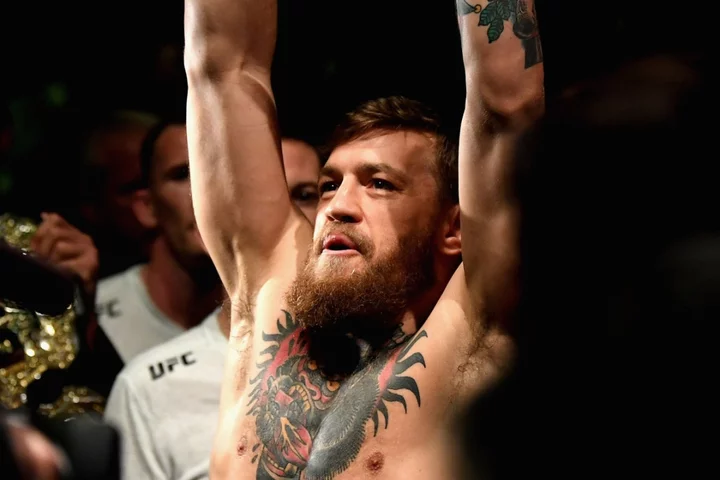
Conor McGregor’s UFC return is edging closer.
McGregor has not fought since suffering a broken leg in a loss to Dustin Poirier in July 2021, but he returned to the United States Anti-Doping Agency’s (Usada) testing pool on 8 October. The end of that saga has also sparked the end of the UFC’s relationship with Usada, which said on 11 October that it would not renew its partnership with the UFC in January, claiming that the organisations’ relationship was made ‘untenable’ by McGregor’s situation.
It was announced in February that McGregor, 35, would fight Michael Chandler this year, but McGregor remained absent from the Usada pool for months; in order to compete in the UFC, athletes must have been in the pool for six months while returning zero positive test results and at least two negatives. The UFC and McGregor hinted that he might be granted an exemption, something that Usada spoke out against in early October.
“We can confirm that Conor McGregor has re-entered the Usada testing pool,” said Usada CEO Travis Tygart. “We have been clear and firm with the UFC that there should be no exception given by the UFC for McGregor [...] Unfortunately, we do not currently know whether the UFC will ultimately honor the six-month or longer requirement because, as of 1 January 2024, Usada will no longer be involved with the UFC Anti-Doping Program.
“Despite a positive and productive meeting about a contract renewal in May 2023, the UFC did an about-face and informed Usada on Monday 9 October that it was going in a different direction. We are disappointed for UFC athletes, who are independent contractors who rely on our independent, gold-standard global program to protect their rights to a clean, safe, and fair Octagon. The UFC’s move imperils the immense progress made within the sport under Usada’s leadership.
“The relationship between Usada and UFC became untenable given the statements made by UFC leaders and others questioning Usada’s principled stance that McGregor not be allowed to fight without being in the testing pool for at least six months.”
If Usada were to renew its relationship with the UFC in January and McGregor were to honour its stipulations, that would put his earliest return date at some time in April – when UFC 300 is expected to take place. McGregor even told TNT Sports on 28 October, while present at Tyson Fury’s boxing match with Francis Ngannou, that April was being discussed with the UFC. However, the end of the UFC-Usada partnership in January theoretically means that McGregor can return any time after that, without having to concern himself with drug-testing rules. That could change now that the UFC has partnered with a different drug-testing organisation, Drug Free Sport, but that remains to be seen.
UFC 298 is expected to take place in February, with UFC 299 likely to be staged in March. McGregor could therefore feature on either card, in theory, and some fans and pundits have argued that UFC 300 will conjure enough hype as it is – without needing McGregor to be involved. In other words: UFC 300 can be sold with other high-profile match-ups, while McGregor’s return sells itself; or: UFC 300 does not need McGregor, and the Irishman does not need UFC 300.
McGregor is still expected to face Chandler, with the 37-year-old American having held out for the icon’s return despite its ongoing delay. Since the announcement of McGregor vs Chandler, McGregor has in fact talked up potential bouts with Justin Gaethje and old rival Nate Diaz, though the latter is no longer signed to the UFC. Furthermore, UFC president Dana White has insisted that Gaethje will not be next for McGregor.
There is less certainty around the weight at which McGregor will return, however. After winning the featherweight title in 2015, McGregor collected the lightweight belt in 2016 to become the UFC’s first ever dual-weight champion, but he has also competed at welterweight three times, trading wins with Diaz in 2016 and stopping Donald Cerrone in 2020. While there is no expectation for McGregor to fight at featherweight again, and although Chandler typically fights at lightweight, McGregor has hinted that he could return at middleweight – having bulked up significantly while recovering from his broken leg.
McGregor suffered that injury in his second straight defeat by Poirier, who knocked out the Irishman in January 2021. The pair, who contested those bouts at lightweight, previously clashed at featherweight in 2014, with McGregor knocking out the American.
Click here to subscribe to The Independent’s Sport YouTube channel for all the latest sports videos.
Read More
Usada ends UFC partnership over ‘untenable’ Conor McGregor situation
Kamaru Usman to face Khamzat Chimaev at UFC 294 after Paulo Costa withdraws
Charles Oliveira replaced by Alexander Volkanovski in Islam Makhachev fight


